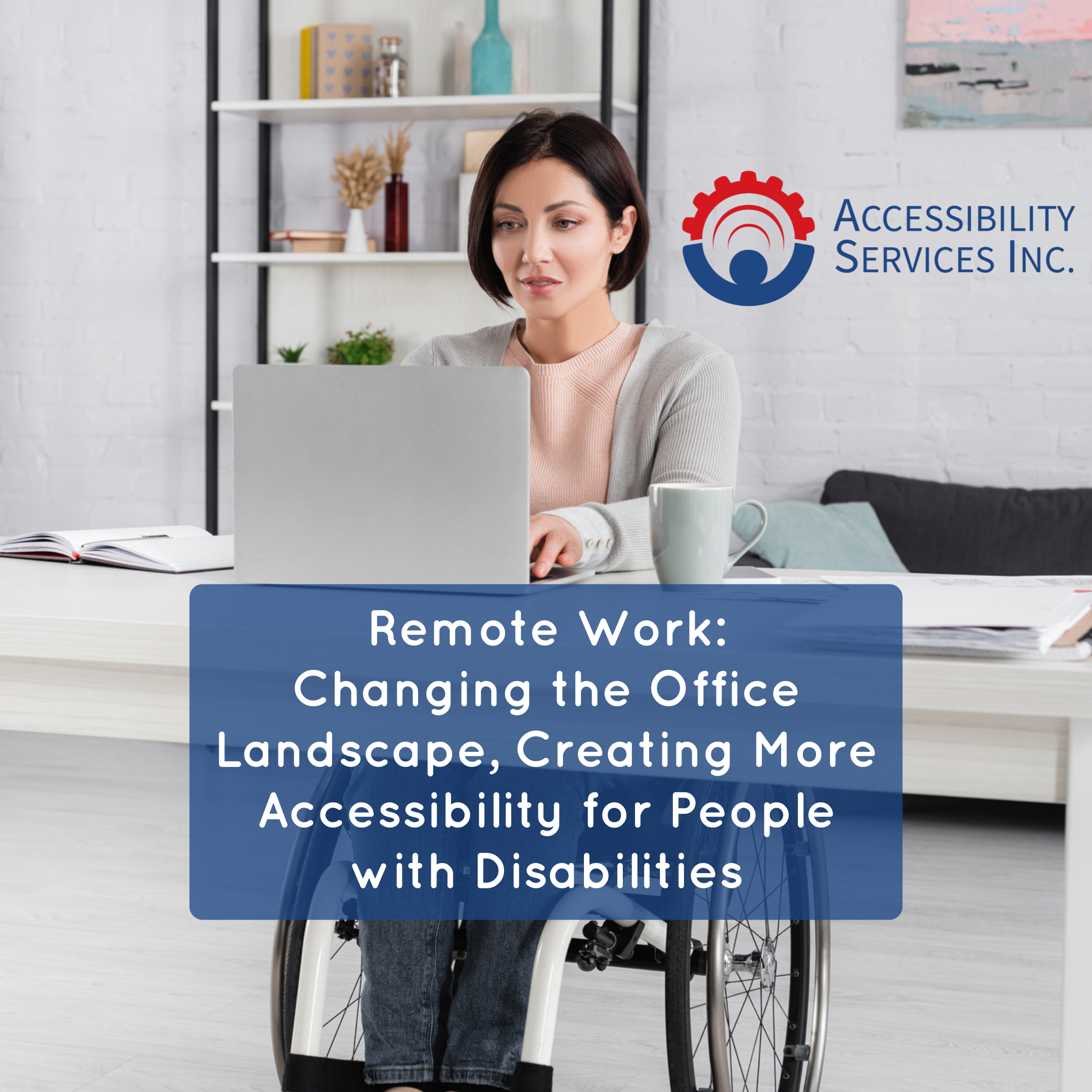
August 30, 2023
Labor Day is just around the corner, so let’s talk labor (i.e., the workplace), how it’s changed, and the opportunities that Remote Work has created for individuals living with disabilities.
Recent data shows the number of people with disabilities finding gainful, accessible employment is increasing. Disability advocates are pointing to the rise in remote work options.
autonoME users who are unable to travel to a physical job site have a distinct advantage when it comes to working from home. The autonoME offers full computing and communication capabilities that can be tailored to meet both their needs and the needs of employers.
In August, the U.S. Bureau of Labor Statistics’ monthly report on employment indicated that approximately 6.3 million individuals with disabilities from ages 16 to 64 were employed the previous month. This report highlights an increase of about 700,000 employment opportunities filled by people with disabilities when compared with July 2022. This, after the previous increase from September 2021 to September 2022 of about 500,000, seems to reveal a correlation between the growth in jobs being filled by individuals with disabilities and the rise in remote work culture.
“The rising employment numbers for people with disabilities is an extremely positive, encouraging sign that will hopefully continue,” said Amy E. Scherer of the National Disability Rights Network. “The subsequent labor shortage in the wake of the [COVID-19] pandemic has also likely had an impact.”
Remote work has proven to be an accessible option for people with disabilities and has assisted them in finding and maintaining employment, according to Maryland-based lawyer and community relations manager to accessiBe (web-based accessibility hub), Josh Basile.
“There is no hiding the fact that thanks to the pandemic, remote work played a key role in the rising statistics of workers with disabilities,” Basille said. “Remote work is a great reasonable accommodation for both workers with and without disabilities.”
Return to Office Mandates? What are Workers with Disabilities Saying?
Basile has lived with quadriplegia since 2004. That’s the year he experienced a severe spinal cord injury that left him paralyzed just below the shoulders. He, like many autonoME Users, relies on assistive technology, customized computers, and the Internet to perform daily tasks and many of his job responsibilities.
Basile says that remote work has allowed him and others within the disabled community to avoid the stressful obstacles that can come with commuting to the office.
“Unreliable transportation to and from work creates major barriers and unnecessary loss of time,” says Basile. “The bottom line is that remote work WORKS and it helps people with disabilities to work at their highest levels by creating a more barrier-free environment.”
Scherer noted that people living with physical disabilities have struggled to maintain jobs due to difficulties traveling to the office for years. However remote work has given these employees a chance to secure steady work, especially in rural areas without reliable public transportation.
“Remote work can also be advantageous for individuals with disabilities who have stamina issues,” she said. “For example, it may be easier for remote workers to take short breaks or briefly step away from their workspace when working remotely.”
Harvard University cited reports showing employees with and without disabilities who work remotely are often more productive, and prefer remote work, because it provides them with more flexibility, a better work/life balance, and allows them to save on commuting expenses.
Flexibility. Work/Life Balance. Remote Work.
According to Josh Basile, employers that are asking workers to return to the office may not realize the impact for workers with disabilities. Returning to the office can be both positive and negative depending on the employee, the industry, the business itself, and any barriers that exist.
“This should be looked at on a case-by-case basis,” explained Basile. “For some, this could be detrimental and for others, it could be for the best. Not all workers with disabilities want to work remotely. Many, like myself do prefer working from home or through a hybrid approach.”
Scherer, who is the senior staff attorney for vocational rehabilitation with the National Disability Rights Network explains that if remote work proves effective for employees with disabilities, it could be a reasonable accommodation under the Americans with Disabilities Act. Scherer implores companies to continue to offer flexibility in the workplace, not just for employees with disabilities, but for everyone.
“Each person’s individual, specific circumstances would need to be examined to see if such an accommodation would be appropriate,” she said. “Hopefully, though, the pandemic has helped many employers to realize that coming to an office building each and every day is not necessarily the key to having productive employees.”
Whether you work from home or at an office/job site, Team ASI is here for you. If you already have an autonoME and are seeking job opportunities, contact your Product Representative to discuss how the autonoME can be customized to help you perform your work duties. If you are not an autonoME user and want to learn more about how it can help you achieve independence at home AND open up new job opportunities, we would love to talk with you. Please reach out and we will have one of our Product Representatives contact you today!













